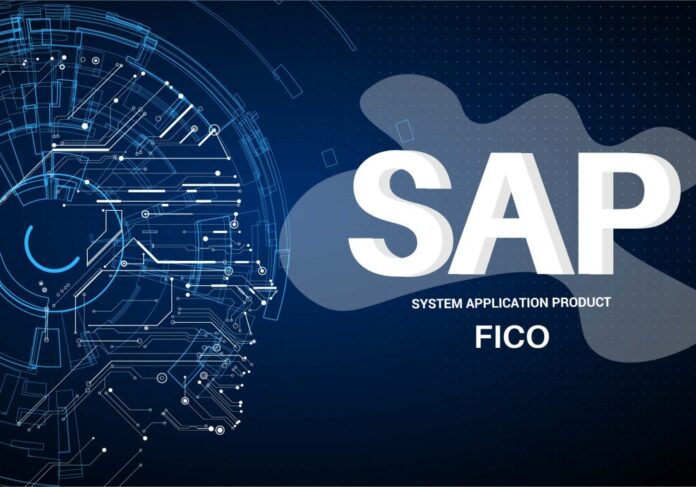SAP FICO is an ERP core functional module that offers effective assistance with cost accounting, revenue management and financial reporting. As a multifaceted solution it enables both external and internal auditing processes as well as streamlining control functions for ease of use.
The course curriculum has been tailored to meet the demands of industry. It offers students an ideal opportunity to stand out among their peers and secure an attractive career profile.
General Ledger (GL)
SAP new G/L provides parallel accounting, segment reporting and document splitting capabilities, cutting time off period-end closings. It also helps reduce operational costs with faster close times and increased compliance while helping reduce risks while creating an efficient control environment.
G/L accounts must be created according to a chart of accounts. An operating chart of accounts contains all of the GL accounts needed for everyday needs as well as legal requirements in each operating country. A company code should assign itself an operating chart of accounts.
The General Ledger account data is regularly updated in real-time and can be viewed at any point for an in-depth picture of external accounts. Additionally, business activities from subsidiary companies and profit centers are included to provide complete financial statements to internal and external audiences. Integrated with all operational areas within a company to guarantee accurate accounting information at all times.
Accounts Payable (AP)
AP (Accounting Panel) is an application component designed to manage accounting data for vendors of a company. This involves creating purchase requisitions, recording deliveries, creating invoices and processing payments as well as providing figures from invoices in order to optimize liquidity planning.
The Accounts Payable module of SAP FICO also offers reports that display open items requiring payment and the status of payment proposal processes, providing organizations with greater financial account control while contributing to increased stability in both finances and environment.
Learning SAP may not be hard, but it takes commitment and practice. Committing to learn daily will help you reach your goals faster – take your career further by enrolling in this SAP FICO course now!
Accounts Receivable (AR)
SAP FICO stands for Financial Accounting and Controlling and is an integral component of SAP ERP software system. It is widely used to manage business transactions and financial reporting. SAP FICO comprises two submodules; SAP FI and CO, which address specific aspects of accounting such as overall accounting and cost controlling respectively.
SAP FI’s Accounts Receivable (AR) module maintains customer accounting records and assigns them to appropriate GL accounts, while also being tightly integrated with SAP S/4HANA Sales so invoices and credit notes can be automatically posted into FI. This enables real-time tracking of customer payments while increasing cash flow; responding rapidly to changing market dynamics; improving vendor relations, pricing terms and payment terms as quickly as possible; as well as driving organizational success more successfully than ever.
Inventory Management (IM)
Keep abreast of new SAP trends and best practices as part of inventory processes management is vitally important. Staying ahead of the game means less disruption for businesses while maintaining competitive edge in the marketplace – this requires regular audits, continuous process reviews and using all SAP functionalities effectively.
SAP FICO is an ERP system widely utilized by companies to manage financial data. This system integrates general ledger accounting, accounts payable/receivable, cash management, asset accounting and bank accounting into one streamlined platform to give companies accurate real-time financial data that enables informed business decisions while increasing efficiency and productivity.
While SAP certification isn’t essential for employment in this field, employers increasingly value it as proof that an individual possesses the training and expertise required to manage complex financial transactions, making them better placed to command higher salaries and advance their careers.
Financial Accounting (FA)
SAP FICO refers to two modules released separately as part of SAP ERP: Financial Accounting (FI) and Cost Planning/Monitoring/Controlling (CO). Although released individually, their functionality has become so tightly interwoven that many users refer to both of them simply as “FICO.” FI handles financial reporting/accounting while CO provides cost planning/monitoring features.
SAP’s Financials Accounting module is integral in supporting an organization’s financial transactions, and managing asset accounting processes – from acquisition, retirements, sales transfers and revaluations through to asset accounting for acquisition, retirements sales transfers revaluations as well as bank reconciliation solutions, cost center accounting internal orders real orders product costing profitability analysis analysis etc. This module ensures all facets are taken care of efficiently.
An SAP FI training course can provide professionals with valuable insight into various technical fields and can advance their careers. However, it is crucial that individuals approach learning new skills with dedication and discipline.
Controlling (CO)
Companies using SAP software can utilize it to efficiently manage all aspects of their financial procedures. The system allows integration with various modules such as Sales and Distribution, Production Planning and Materials Management – features which make it easy for professionals to comprehend how a company operates for increased stability and consistency.
The SAP CO course provides a thorough understanding of SAP ERP’s control components, such as Cost Center Accounting and Profitability Analysis, Internal Orders and Activity Based Costing basics as well as Activity Based Costing basics. By successfully completing this training you will be equipped with skills necessary for using SAP software for project lifecycle management, from budgeting and planning through to reporting and decision-making.
SAP CO is more focused on management accounting, although both modules remain closely related and share information regularly. Most allocations made in SAP FI also update figures recorded by SAP CO.
Also Read: https://saponlinetraining.co.in/








